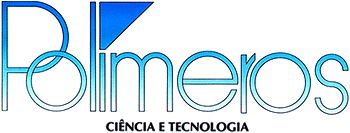In order to correlate processing conditions in intermeshing co-rotational twin-screw extrusion (ICTSE) and properties of PBT/ABS blends, devices have been developed to obtain extruded strips from PBT/ABS blends. The PBT/ABS blend compatibilized with reactive copolymer methyl methacrylate- glycidyl methacrylate (MGE) has shown higher viscosity, lower heat of fusion and lower ductile-brittle transition temperature (DBTT) when compared to the non compatibilized PBT/ABS blend, possibly due to chemical reactions between MGE epoxy groups and the molecule end groups from PBT. Concerning the screw rotation, the compatibilized blend processed with 120 rpm has shown higher viscosity, lower heat of fusion and better impact strength properties than the one processed with 240 rpm. This could be a consequence of degradation of the blend components, caused by higher screw rotation. The feeding rate has presented itself as the processing parameter with the greater influence on blend properties. A feeding rate of 3.5 kg/h has severely compromised impact strength properties, reduced the viscosity and increased the heat of fusion, in contrast to a feeding rate of 7.0 kg/h. These observations can be attributed to a higher residence time, with the blend being submitted to higher temperature and shear for a long time, leading to the degradation of blend constituents.
PBT/ABS blend; twin screw extruder; polymer processing







